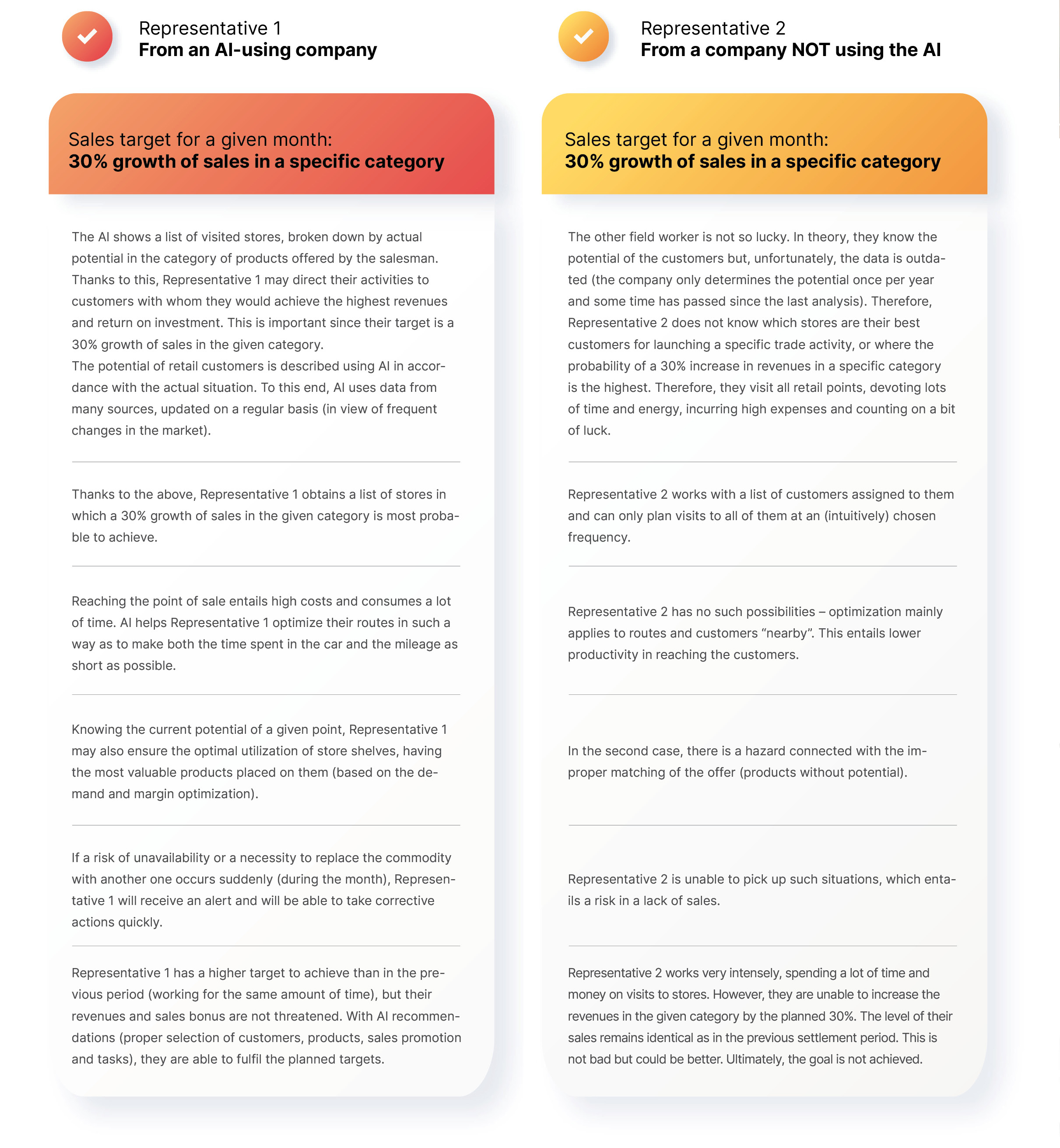It is definitely the latter option. We can see enormous business potential in artificial intelligence. We believe there is no better way to competitiveness today than process support through AI mechanisms. This is why we give this subject a priority at Asseco Business Solutions. And, what we deem the key aspect – in our artificial intelligence projects, we focus on more than just the technology itself. What comes first to us is the customers’ business, needs and goals, as well as the way we can help them by using AI.
Revisiting the first part of the question, we obviously follow the market trends constantly and carefully. They are often inspiring to us, although we sometimes approach them with a degree of care. We pick the things which do make sense and can prove themselves in sales support, not only those currently in vogue.
You have said AI has a lot of potential. Most people are aware of this and have more or less limited knowledge in this area. Could you, an expert, picture and explain the idea of the utilization of AI in a few words?
Artificial Intelligence helps us describe the surrounding reality, diagnose problems, identify opportunities in a very efficient, accurate and relevant way. This is usually based on very large data sets and in an objective manner, thanks to the elimination of many factors that have restricted us so far, such as constant lack of time, perturbations caused by subjective evaluation of a person, high costs, or lack of appropriate tools for analysis.
This is the greatest value of AI, regardless of the area of life or the industry in which it is utilized.
The knowledge obtained through Artificial Intelligence helps make better decisions, even difficult ones and under the pressure of time. AI improves their accuracy.
And when our decisions are better, their outcomes have a favourable effect on our life, health or work. Leaving the FMCG industry for a moment, I will illustrate an example. If we drive a car equipped with state-of-the-art technological solutions, our safety and comfort of travel increase, the fuel consumption is lower and we are sure we will reach our destination without wandering around. However, we still have to drive the car on our own and make decisions all the time – when to overtake another car, where to take a turn, what speed to travel at. In this process, technology brings us knowledge (through analysis of many factors at the same time) about what would be most favourable at a given moment. The same function is fulfilled by artificial intelligence in the planning and implementation of a sales strategy.
How exactly does it take place? What may AI specifically improve in sales?
A natural consequence of the spread and development of Artificial Intelligence is the utilization thereof in FMCG business processes as well. Each day, every organization generates a large amount of data – its own and those concerning its competitors, coming from different sources, sales channels or systems. On their basis, the senior management and sales managers, as well as representative bodies, may make more or less accurate decisions. It is up to their relevance that the company manages to achieve the sales targets, implement the best strategies, optimize the costs, etc. AI may increase the probability of success.
I will try to illustrate it again. Let us imagine two salesmen from two different (competing!) companies have to meet their targets for a given month at the points of sale assigned to them. They offer similar products from the same category, use the SFA class solutions, have access to the distributors’ inventory data, optimize the route to the customer as far as possible, etc. Which one of them will win the race? Only one. The one “guided” to the stores by artificial intelligence. Why? Here is the explanation:














